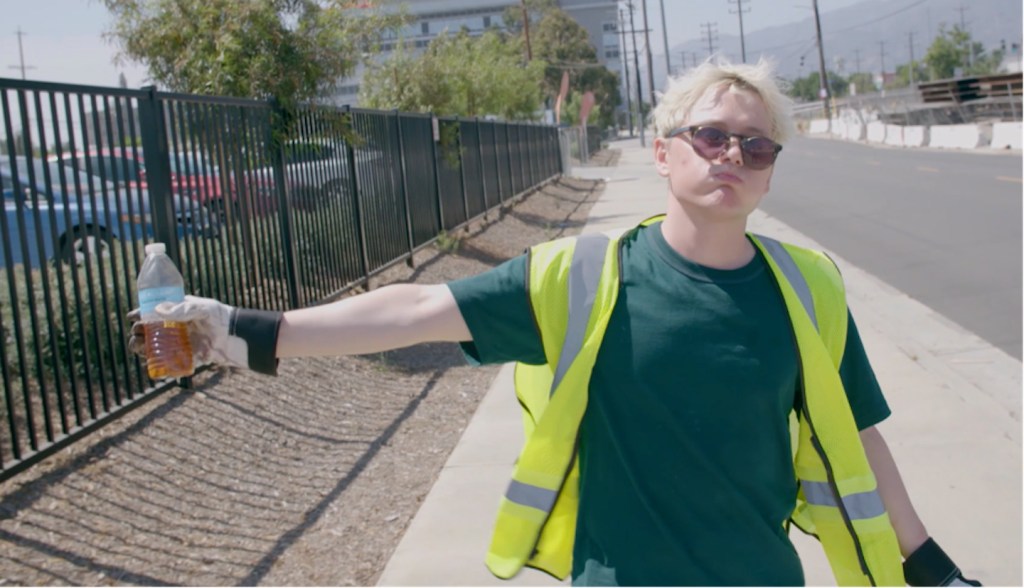On Thursday, Uber submitted a public comment to the CDC’s Advisory Committee on Immunization Practices asking that Uber’s ride-hail drivers and delivery drivers be considered “non-health essential workers” and thus prioritized in early distribution of a COVID-19 vaccine.
To bolster its case, Uber cited an advisory memo by the Department of Homeland Security’s Cybersecurity & Infrastructure Security Agency (CISA) which sought to create an “Essential Critical Infrastructure Workforce” list that might help authorities at any level conduct a phased reopening and “ensure continuity of functions critical to public health and safety.” Among CISA’s list are workers supporting services such as “taxis, delivery services, vehicle rental services, bicycle maintenance and car-sharing services, and transportation network providers.”
Videos by VICE
Uber argues that its drivers “provide critical transportation services for essential workers such as hospital workers, caregivers and first responders” and have become even more important as “major cities have reduced service hours for mass transit.” Uber also points to its delivery services, insisting it has provided “an economic lifeline to small businesses and restaurants” that has kept these businesses open, their workers employed, and cites a restaurant survey conducted by Uber Eats where the majority of respondents said they would have likely closed their business if not for delivery platforms like Uber Eats.
Uber’s push comes in the context of an expected initial undersupply of vaccine doses (such as Pfizer’s) due to supply chain problems and other issues.
“Given that vaccine supply will be limited initially, the availability of essential services such as the transportation and delivery services provided by rideshare drivers and delivery people will continue to be critical for the general public as they await the COVID-19 vaccine,” Uber’s public comment reads. “Early access to a vaccine would help drivers and delivery people continue to play their essential role while also reducing the risk that they may inadvertently contract, or possibly transmit, the virus.”
All of this true, but in a primarily superficial sense. Take Uber Eats, for example. Many restaurants will say delivery platforms have saved them during the pandemic but at the same time, restaurants have expressed fears that they’ve entered a parasitic relationship which will permanently eat into their margins. For restaurants, predatory fees and practices by delivery platforms have led to a nationwide crackdown, especially in New York City and California.
Because of the abysmally unprofitable unit economics of Uber Eats’ business model, there is an increasingly high price to pay for convenience as Uber tries to craft some tangible path to profitability. For customers, Uber Eats can charge a premium as high as 91 percent, a strategy that has not prevented this unit of Uber from seeing stupendous demand growth during the pandemic. For delivery workers, work is so demanding and poorly compensated that there isn’t even time to relieve oneself—part of a time-tested strategy by the company to improve its books by offloading as many costs as possible onto drivers.
Uber’s claims about the essential nature of its ride-hail operations should also be viewed with the same skepticism—both public transit and Uber have seen a massive contraction in demand. A vaccine for drivers, though, would give it an edge.
Uber and other ride-hail platforms have typically grown at the expense of public transit, but so long as the public sees COVID-19 as a risk in both public and private transit, the company is unable to profit directly from this historic contraction of public transit. Allowing ride-hail and delivery drivers early access to the vaccine, however, would do the trick. By allowing the company to market itself as a uniquely safe and secure transportation option, the CDC would end up playing a role Uber has typically reserved for compromised academic institutions to reinforce PR claims and bought off civil rights groups to legitimize anti-worker laws.
All of this is even more worrying considering how Uber has responded to COVID-19 on its own platform. During the first peak of COVID-19, Uber rolled out an ineffectual sick paid leave policy that functioned more like a perpetually moving goal post for many drivers who had to choose between a COVID-19 infection or starving. It’s not clear why Uber should get this CDC designation for its drivers when it has fought so hard to avoid providing its drivers healthcare, grown more adamant in taking its new driver misclassification scheme nationwide, and left drivers largely ineligible for unemployment benefits.
If Uber were truly concerned about its drivers’ livelihoods and safety, it would properly classify them, pay them livable wages, and provide comprehensive enough benefits to free drivers from the constant threat of starvation or infection.




